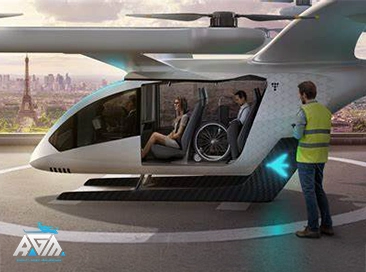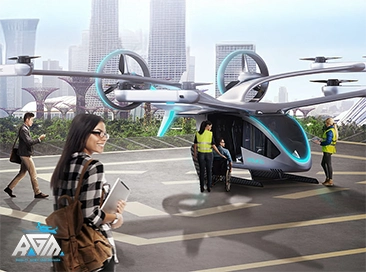
Rodolfo G. Mascarenhas
Faith is my compass, persistence my engine. As a Chief Pilot, I thrive on transforming aspirations into achievements in the skies.
Follow Me
24/05/2025
AI in the Cockpit: Aviation’s Next Co-Pilot?
Exploring innovation and transformation in flight.

The Future Takes Flight
The aviation industry stands at the precipice of remarkable transformation. Driven by technological advancements, environmental concerns, and evolving passenger expectations, the skies of tomorrow promise to look vastly different from what we know today. We are witnessing a surge in the development of electric and hybrid-electric aircraft, poised to revolutionize short-haul flights and urban air mobility. Imagine a future with quieter skies and significantly reduced carbon emissions, as these cleaner alternatives take to the air. Beyond propulsion, advancements in autonomous flight are rapidly progressing, hinting at a future where pilotless cargo flights and even passenger journeys could become commonplace, raising intriguing questions about efficiency and safety protocols.
Sustainability Takes Center Stage
The imperative for sustainable aviation is no longer a distant goal but a pressing necessity. The industry is actively investing in sustainable aviation fuels (SAFs) derived from renewable sources, offering a near-term solution to significantly reduce the carbon footprint of air travel. Research and development in this area are accelerating, with the aim of making SAFs more widely available and cost-effective. Furthermore, aircraft design is evolving, with a focus on lighter materials and more aerodynamic structures to improve fuel efficiency across the board. The collective effort towards a greener aviation sector reflects a growing awareness of our environmental responsibility and a commitment to a sustainable future for air travel.
The Passenger Experience Reimagined
Beyond the technical aspects, the future of aviation will be heavily influenced by the passenger experience. Expect more personalized and seamless journeys, leveraging data analytics and artificial intelligence to optimize everything from booking to baggage handling. In-flight connectivity will become even more robust and ubiquitous, transforming the cabin into a truly connected space for work and entertainment. Biometric identification and automated processes will likely streamline airport procedures, reducing wait times and enhancing convenience. The focus will be on creating a more comfortable, efficient, and enjoyable travel experience from the moment the journey begins until the final destination.


Urban Air Mobility
Vertical takeoff and landing (VTOL) aircraft promise to revolutionize city commuting, offering faster and more efficient transportation within urban environments.
Digital Cockpits
Artificial intelligence and enhanced data integration will create smarter, more intuitive cockpits, aiding pilots with real-time insights and decision-making.
